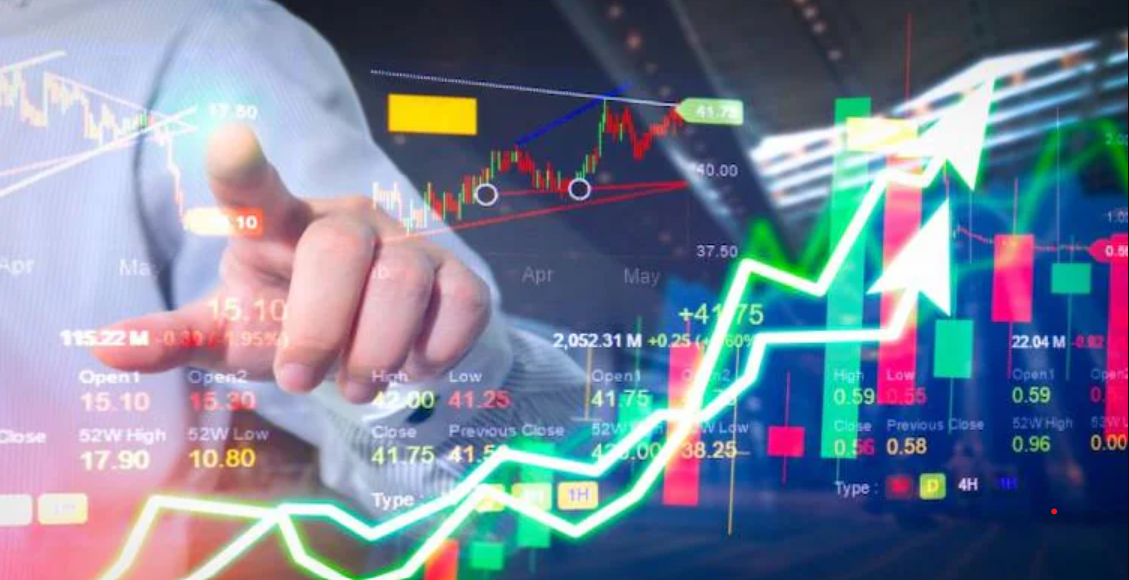In 2024, the world of finance is witnessing unprecedented turbulence as global stock market volatility reaches record highs. Investors and analysts alike are scrambling to understand the factors driving this instability. With sharp fluctuations in stock prices, the market is more unpredictable than ever. This article dives into the causes, implications, and strategies for navigating this volatile landscape.
Factors Contributing to Record Highs in Global Stock Market Volatility
Understanding the reasons behind this extreme volatility is crucial for investors looking to make informed decisions. Several key factors have been identified as major contributors to the current market situation.
1. Economic Uncertainty
One of the primary drivers of volatility in 2024 is economic uncertainty. With ongoing geopolitical tensions, fluctuating oil prices, and varying economic policies across different regions, markets are reacting sharply to any new developments. Investors are finding it challenging to predict outcomes, leading to increased market swings.
2. Technological Advancements and AI
Technological advancements, particularly in artificial intelligence and algorithmic trading, have also played a significant role. While these technologies have brought efficiency, they have also introduced a level of unpredictability. High-frequency trading algorithms can amplify market movements, causing rapid price changes that contribute to volatility.
3. Global Health Concerns
The lingering effects of the COVID-19 pandemic continue to impact global markets. New health concerns and potential pandemics create uncertainty, affecting investor confidence. Markets react swiftly to news about health crises, leading to sudden drops or spikes in stock prices.
4. Regulatory Changes
In 2024, several countries have implemented new financial regulations aimed at stabilizing their economies. While these regulations are intended to reduce risk, they often lead to short-term volatility as markets adjust to new rules. Investors are cautious, and any regulatory announcements can trigger significant market reactions.
Implications of High Market Volatility
The record highs in global stock market volatility have several implications for investors, businesses, and economies. Understanding these implications can help stakeholders navigate the challenges posed by an unpredictable market.
Impact on Investors
For individual and institutional investors, high volatility presents both risks and opportunities. While the potential for significant gains exists, so does the possibility of substantial losses. Investors need to adopt strategies that protect their portfolios from extreme fluctuations, such as diversification and risk management techniques.
Business Operations
Businesses are also affected by market volatility. Companies with exposure to stock markets may experience fluctuations in their valuations, impacting their ability to raise capital or make strategic investments. Additionally, high volatility can affect consumer confidence, influencing spending patterns and overall economic activity.
Economic Stability
Prolonged periods of high volatility can undermine economic stability. Central banks and governments may need to intervene more frequently to stabilize markets and prevent panic. Such interventions can include adjusting interest rates, implementing stimulus packages, or introducing market regulations.
Strategies for Navigating Volatile Markets
Given the record highs in global stock market volatility, investors must adopt strategies to manage risk and capitalize on potential opportunities. Here are some effective approaches:
Diversification
Diversifying a portfolio across different asset classes, sectors, and geographies can help mitigate risk. By spreading investments, investors reduce the impact of a downturn in any single market or sector.
Risk Management
Implementing risk management techniques, such as stop-loss orders and hedging, can protect portfolios from severe losses. These tools allow investors to set predetermined exit points or offset potential losses through complementary investments.
Long-Term Focus
Adopting a long-term investment perspective can help investors weather short-term volatility. By focusing on fundamental analysis and the intrinsic value of investments, investors can avoid making impulsive decisions based on market fluctuations.
Staying Informed
Keeping abreast of market news and economic developments is crucial. Investors should follow reliable sources of information and stay updated on factors that influence market movements. Being informed enables investors to make timely and informed decisions.
Professional Advice
Consulting with financial advisors or investment professionals can provide valuable insights and guidance. These experts can help investors develop personalized strategies that align with their financial goals and risk tolerance.
Conclusion
2024 sees record highs in global stock market volatility, driven by economic uncertainty, technological advancements, health concerns, and regulatory changes. While this volatility presents challenges, it also offers opportunities for informed investors. By understanding the factors contributing to market fluctuations and adopting appropriate strategies, investors can navigate this unpredictable landscape effectively. Staying diversified, managing risk, maintaining a long-term focus, staying informed, and seeking professional advice are key to thriving in a volatile market.
FAQ
Q: What is causing the high volatility in global stock markets in 2024? A: Several factors contribute to the high volatility, including economic uncertainty, technological advancements, global health concerns, and regulatory changes.
Q: How does high volatility impact investors? A: High volatility presents both risks and opportunities for investors. While there is potential for significant gains, there is also a risk of substantial losses, making it crucial for investors to adopt risk management strategies.
Q: What strategies can investors use to manage volatility? A: Effective strategies include diversifying portfolios, implementing risk management techniques, maintaining a long-term investment focus, staying informed about market developments, and seeking professional financial advice.
Q: How do technological advancements contribute to market volatility? A: Technologies such as artificial intelligence and algorithmic trading can amplify market movements, causing rapid price changes that increase volatility.
Q: Can high market volatility affect businesses and economies? A: Yes, businesses may experience fluctuations in valuations, affecting their ability to raise capital and make strategic investments. Prolonged volatility can undermine economic stability, leading to more frequent interventions by central banks and governments.



